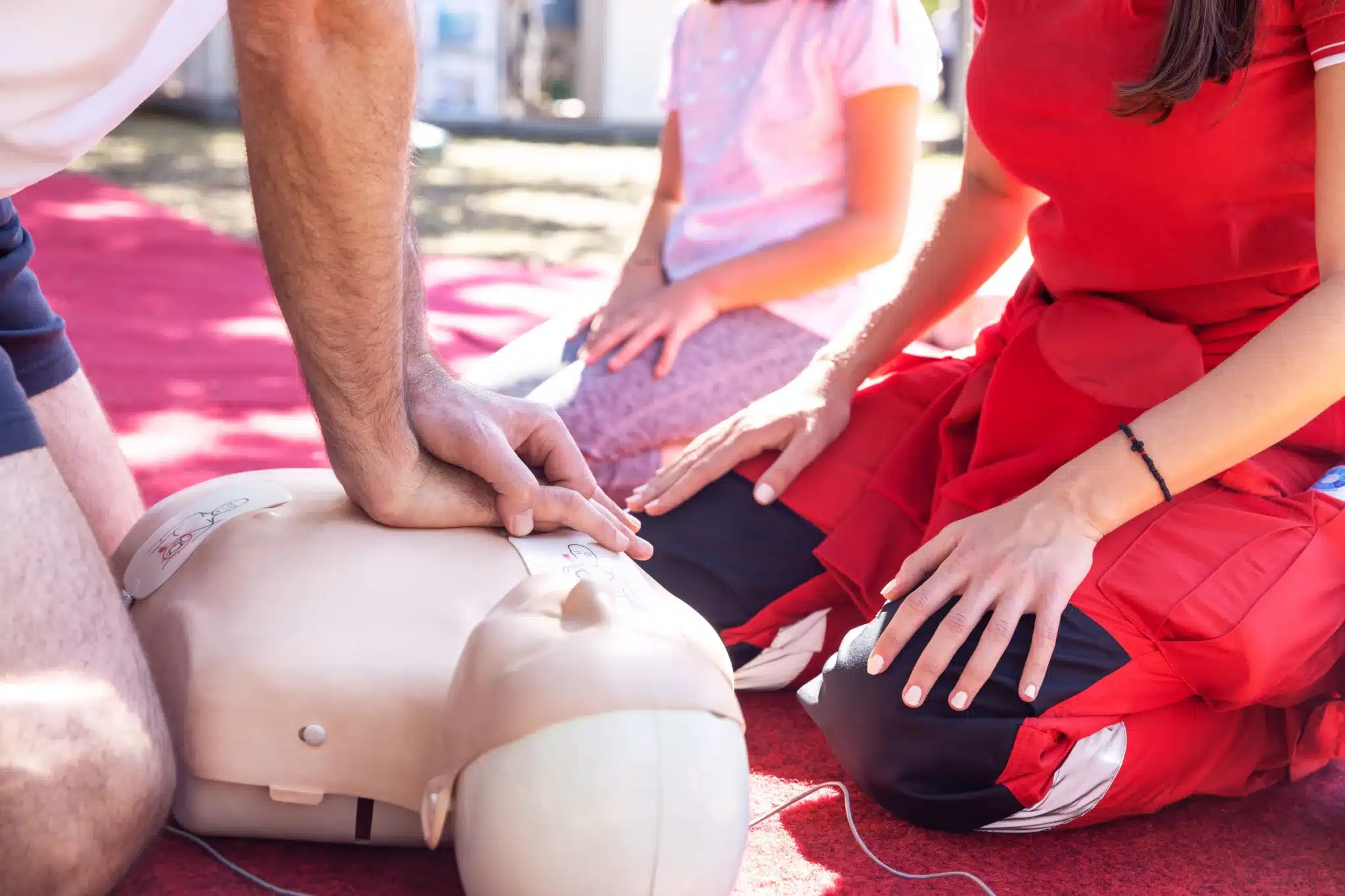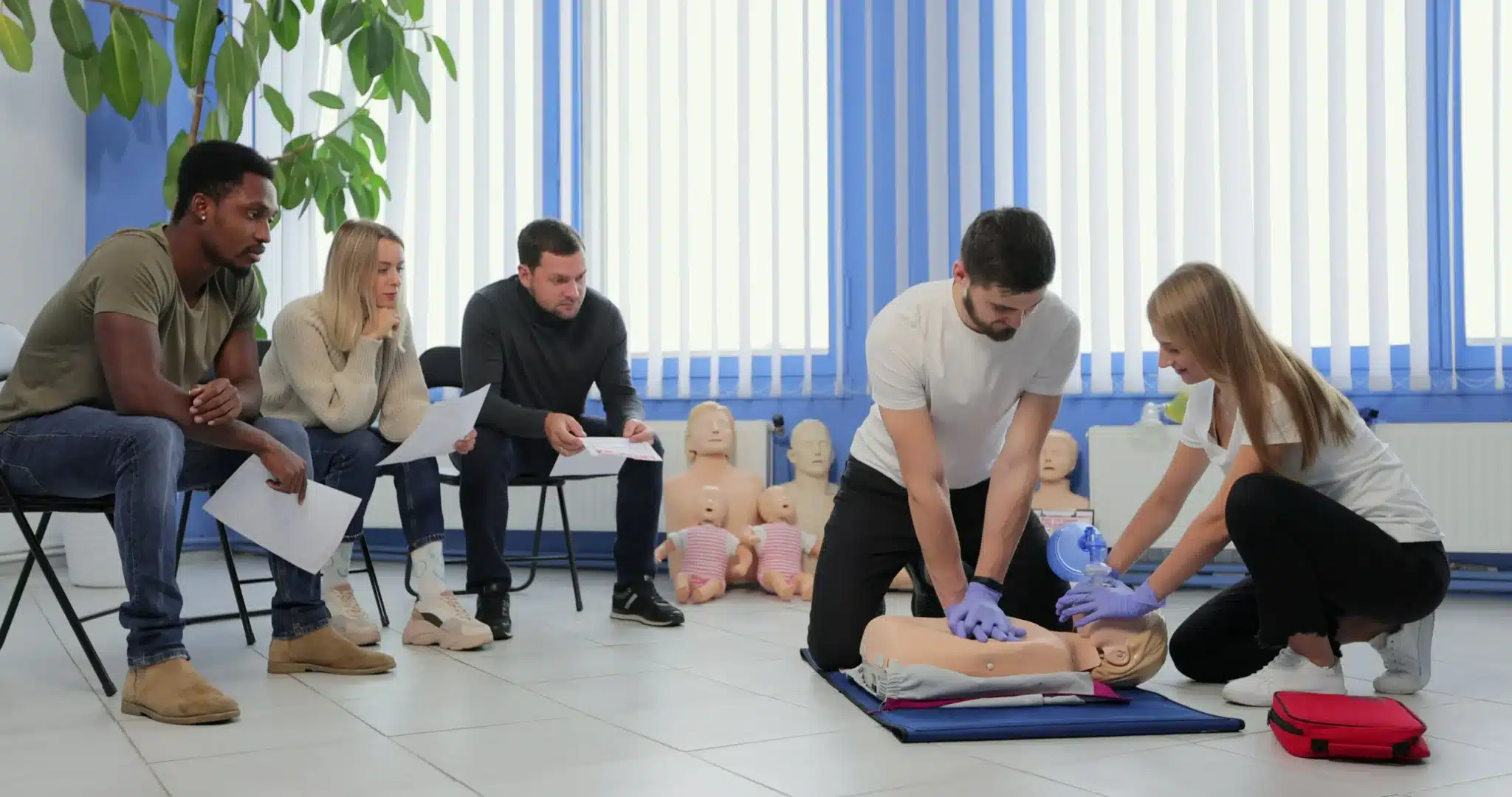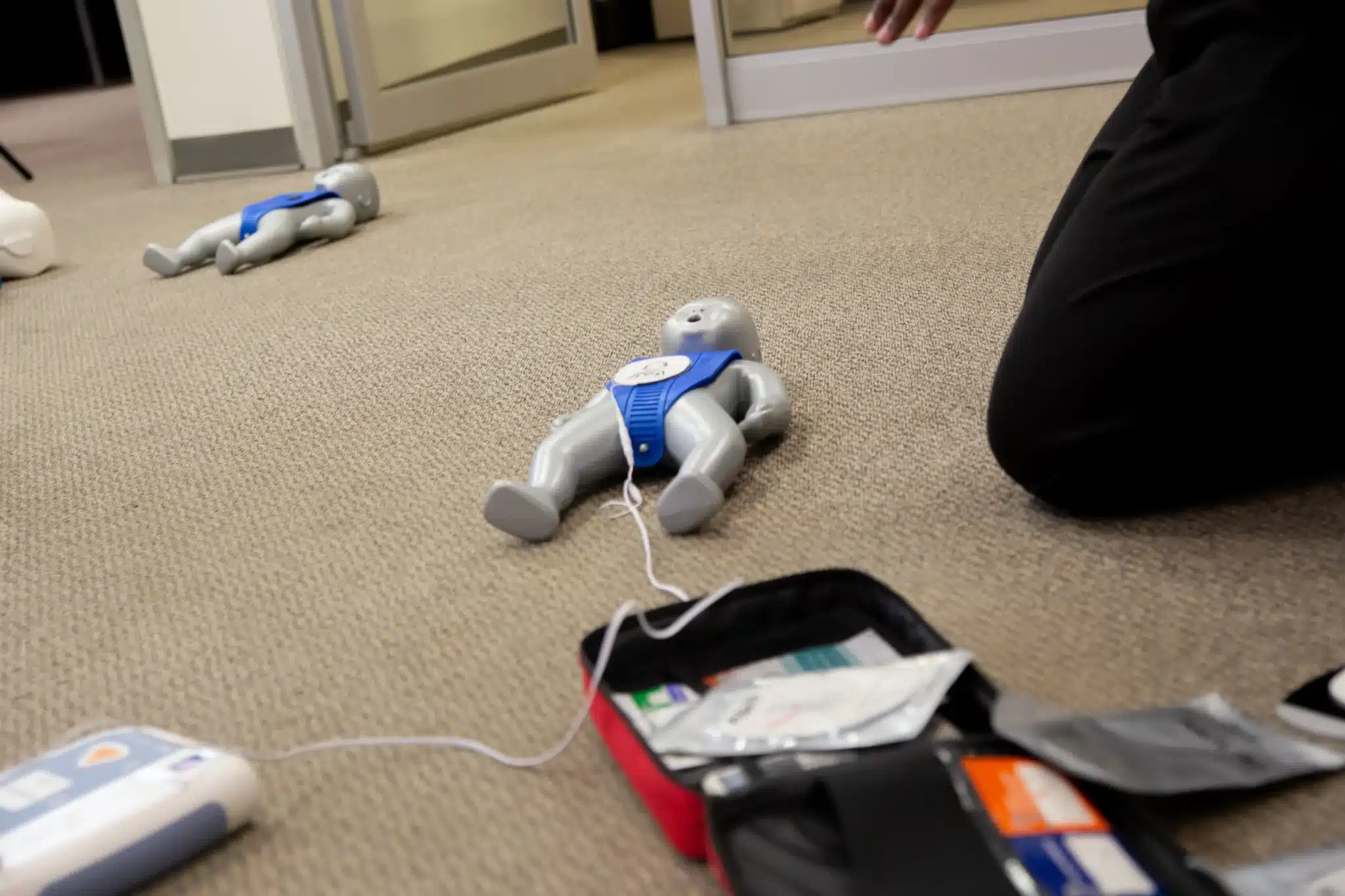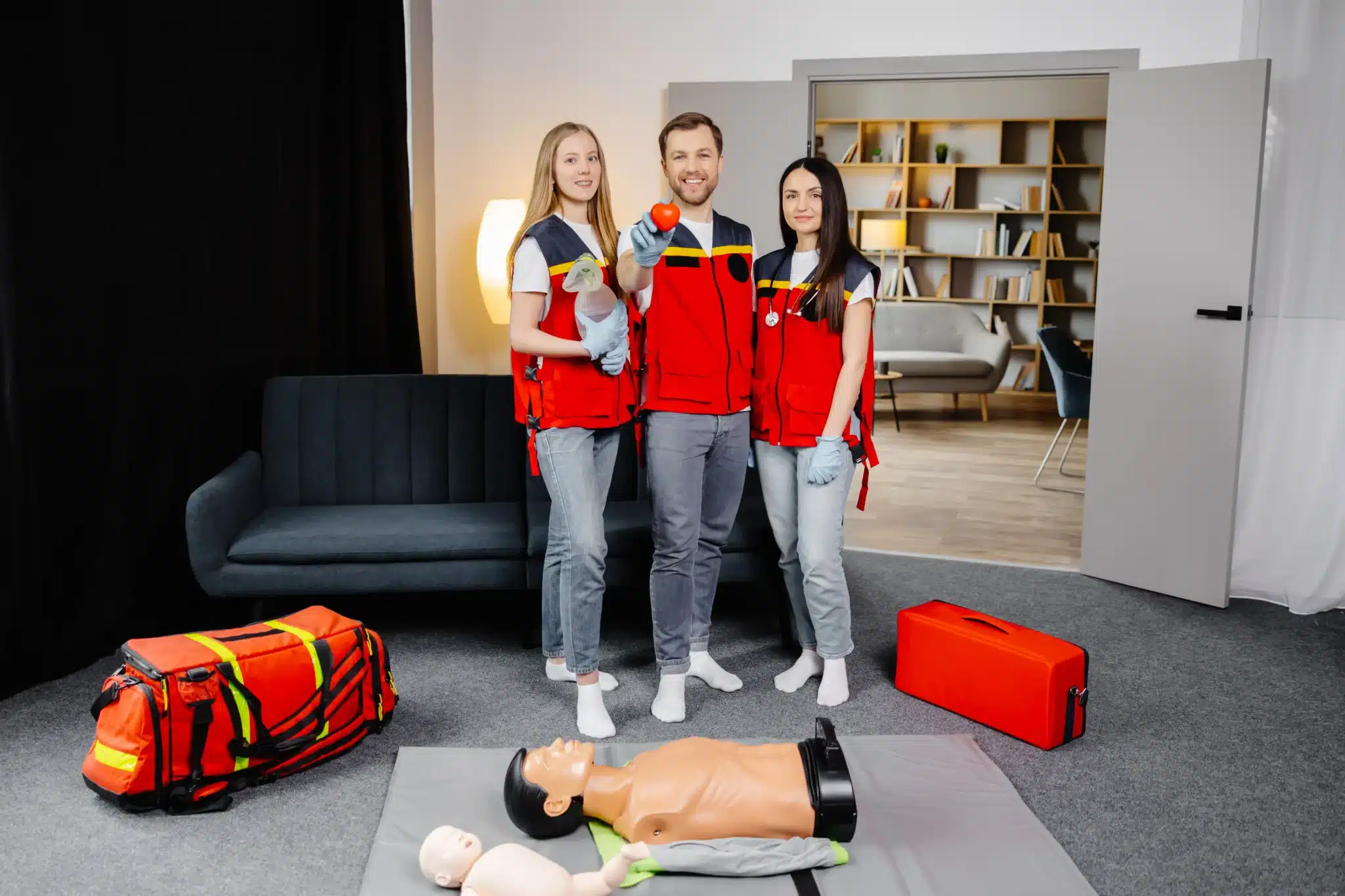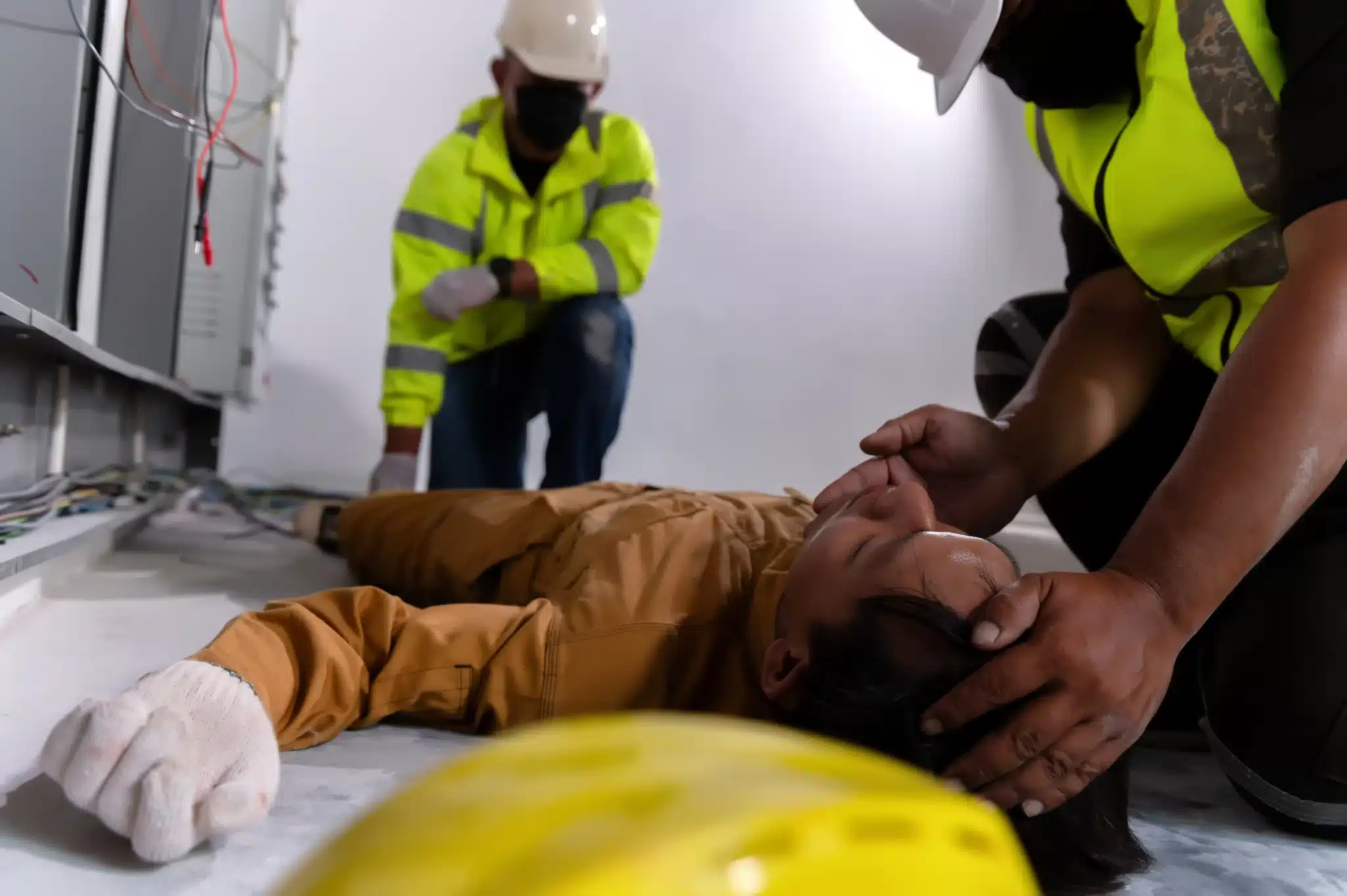Are you a healthcare professional in Fremont looking to enhance your pediatric emergency response skills? PALS HeartCode certification offers a flexible and effective way to gain the knowledge and practical experience necessary to manage critical situations involving infants and children. This blended learning program combines online coursework with a hands-on skills session, allowing you to learn at your own pace and apply your skills in a realistic environment. This article explores the benefits of PALS HeartCode in Fremont, providing valuable insights into the program’s structure, cost, and how to find the right training provider to meet your needs. We’ll also discuss the importance of PALS certification in advancing your healthcare career and ensuring the best possible outcomes for your young patients.
Key Takeaways
- PALS HeartCode blends online learning with hands-on practice: This flexible approach lets you learn the material at your own speed and then demonstrate your skills in a practical setting.
- Become confident in responding to pediatric emergencies: The course provides comprehensive training in recognizing and managing life-threatening conditions in infants and children.
- Find a PALS HeartCode course that fits your needs: Consider factors like location, schedule, instructor experience, and cost when choosing your training provider.
What is PALS HeartCode?
What is PALS HeartCode?
PALS HeartCode is a blended learning program that combines online coursework with a hands-on skills session. This approach allows you to learn the cognitive components of Pediatric Advanced Life Support (PALS) at your own speed, then demonstrate your skills in person. It’s a flexible way to gain the knowledge and practical experience necessary to respond to pediatric emergencies. The PALS HeartCode program is designed for healthcare providers who need to either obtain PALS certification or recertify. It covers essential concepts like recognizing and managing respiratory and cardiac arrest in infants and children.
How HeartCode differs from traditional PALS
Unlike a traditional PALS course held entirely in a classroom, HeartCode PALS offers a self-paced online learning experience. This format makes it easier to fit the training into a busy schedule. You can work through the online modules whenever and wherever it’s convenient for you. After completing the online portion, you’ll schedule an in-person skills session with an AHA Training Center, like Fremont CPR Classes, to practice and be evaluated. This blended learning approach ensures you have both the theoretical knowledge and the practical skills to provide effective care during pediatric emergencies. This blended learning style benefits healthcare providers by allowing flexibility and reinforcing practical application.
Key PALS HeartCode Training Components
Learn at your own pace online
The PALS HeartCode program lets you learn online at your own speed. This blended learning format combines online modules with a hands-on skills session, giving you time to absorb the material thoroughly before practicing your skills. The American Heart Association (AHA) describes HeartCode PALS as the perfect way to build a strong foundation in pediatric advanced life support. This flexible approach accommodates busy schedules and different learning styles. You can review sections as needed and progress through the material when it’s most convenient for you.
Practice essential skills hands-on
While the online portion of PALS HeartCode offers flexibility, the hands-on skills session is essential for earning your PALS certification. This in-person session, conducted at an AHA Training Center like Fremont CPR Classes, focuses on practical application. You’ll work with instructors to practice essential PALS skills and techniques in a realistic environment. This combination of online learning and hands-on practice ensures you develop the competence and confidence to respond effectively in pediatric emergencies. The skills session culminates in a final exam to assess your proficiency and issue your PALS certification card.
Find PALS HeartCode Classes in Fremont
Finding the right PALS HeartCode training can feel overwhelming, but several excellent resources in Fremont can help you get certified. Let’s explore some options to kickstart your search.
Fremont CPR Classes
Fremont CPR Classes offers AHA PALS courses designed to equip healthcare providers with the skills to manage pediatric emergencies. These classes cover a range of topics, from basic life support to advanced airway management, ensuring you’re prepared to respond effectively.
Safety Training Seminars
Safety Training Seminars, a woman-owned AHA Training Center, provides high-quality PALS certification courses in Fremont. They understand the demands of healthcare professionals and offer flexible scheduling options, including weekday and weekend classes. Learn more about their course offerings and schedules.
Bay Area CPR
Bay Area CPR also offers AHA PALS classes in Fremont. They focus on providing convenient and accessible training, making it easier for busy professionals to fit certification into their schedules. Explore their PALS classes and other CPR training options to see if their approach is a good fit for you. They even offer on-site training, bringing the course directly to your workplace.
PALS HeartCode Certification: Cost & Value
Understanding the cost and value of PALS HeartCode® training is essential when choosing the right certification path. Let’s break down the typical pricing structures and explore available discounts.
Standard Pricing
The standard cost for the PALS HeartCode course can vary, but typically sits around $225. This covers the comprehensive blended learning experience, including the online modules and the essential in-person skills session. This combined approach ensures you develop a solid understanding of the material and the practical skills to apply it effectively. Providers like the Children’s Hospital of Philadelphia often list pricing details on their PALS HeartCode course page. Contacting your local training center directly is always a good idea to get the most up-to-date pricing information.
Group Discounts and Promotions
If you’re coordinating training for a larger group, such as a hospital department or a team of healthcare providers, explore group discounts. Many providers, including the American Heart Association, offer substantial price reductions for larger groups. These discounts can significantly reduce your overall training budget, making high-quality PALS training more accessible. Fremont CPR Classes offers discounts for group bookings, so reach out to discuss options for your team.
Bundle Packages
Another smart way to save is by looking into bundle packages. If you’re planning to take multiple courses, such as BLS, ACLS, and PALS, bundling them together can often result in significant cost savings. Some training centers offer these combined packages. Always Safe and Healthy, for example, details package options on their PALS HeartCode page. Check with your chosen provider, like Fremont CPR Classes, to see what bundled options they offer and how much you can save. This is a particularly valuable option for individuals looking to expand their skill set or organizations training multiple staff members.
Prepare for PALS HeartCode: Prerequisites & Expectations
So, you’re ready to take the next step in your healthcare career and become PALS certified? Great! This section outlines what you need to know before you begin your PALS HeartCode journey. Understanding the prerequisites and having realistic expectations will set you up for success.
Required Certifications and Knowledge
While there aren’t any strict certification requirements to begin PALS HeartCode training, a solid foundation in basic life support is highly recommended. A current BLS certification ensures you’re familiar with core life-saving techniques. PALS builds upon these fundamental skills, focusing on the specialized needs of pediatric patients. The PALS certification is designed for healthcare providers regularly involved in pediatric care, such as pediatricians, emergency physicians, nurses, paramedics, and respiratory therapists. Familiarity with medical terminology and basic pediatric anatomy and physiology will also be beneficial.
Course Materials
The PALS HeartCode program uses a blended learning approach, combining online coursework with a hands-on skills session. The online portion uses American Heart Association (AHA) materials and allows you to learn at your own pace. You’ll have access to the PALS Provider Manual eBook, which serves as your comprehensive guide throughout the course. Take your time reviewing the material and make sure you understand the key concepts.
Skills Session Overview
After completing the online portion, you’ll participate in a required in-person skills session. This session focuses on practical application and allows you to demonstrate your proficiency in essential PALS techniques. You’ll work with certified instructors to practice critical skills like CPR, airway management, and vascular access. The skills session culminates in a final exam to assess your competency. Upon successful completion of both the online coursework and the skills session, you’ll receive your official PALS certification. For more information about pricing and to register, contact us today.
Benefits of PALS Certification
Earning your Pediatric Advanced Life Support (PALS) certification offers significant advantages, both personally and professionally. Whether you’re a seasoned healthcare provider or just starting your career, PALS equips you with the knowledge and skills to make a real difference in critical situations.
Enhance your emergency response skills
PALS certification significantly improves your ability to respond effectively during pediatric emergencies. The PALS course provides comprehensive training in recognizing and managing life-threatening conditions in infants and children. You’ll learn evidence-based algorithms and techniques to provide rapid, high-quality care, ultimately increasing the chances of positive outcomes for your young patients. This specialized training goes beyond basic life support, focusing on the specific physiological differences and needs of children.
Advance your career
For healthcare professionals, PALS certification is often a required credential and demonstrates a commitment to advanced pediatric care. Holding a PALS certification can open doors to new opportunities and specializations within your field. Many hospitals and healthcare facilities require PALS certification for positions in pediatric intensive care units (PICUs), emergency departments, and other areas focused on pediatric care. It can also enhance your resume and make you a more competitive candidate for promotions.
Gain standardized knowledge and skills
PALS certification ensures you receive standardized training based on the latest guidelines from the American Heart Association. This standardized approach promotes consistency and best practices in pediatric care across different healthcare settings. The AHA’s RQI program offers a streamlined and efficient way to obtain and maintain your PALS certification, ensuring you receive high-quality instruction. This focus on standardization helps create a cohesive team approach during emergencies, improving communication and coordination among healthcare providers.
Increase your confidence in critical situations
Knowing you have the skills and knowledge to handle pediatric emergencies can significantly increase your confidence in high-pressure situations. This confidence translates to quicker decision-making, improved communication with colleagues and families, and a greater ability to remain calm and focused when it matters most. PALS training provides the foundation you need to feel prepared and empowered to provide the best possible care for children facing life-threatening conditions.
Your PALS HeartCode Experience: Online to Hands-On
This section walks you through what to expect from your PALS HeartCode training, from the initial online modules to the crucial hands-on skills session.
Navigate the online platform
PALS HeartCode blends online learning with in-person skills practice. The online portion lets you learn at your own pace, revisiting modules as needed. This online course uses adaptive technology, meaning it adjusts to your learning style for a personalized experience. You’ll work through interactive lessons, case studies, and simulations based on the 2020 AHA Guidelines for CPR and ECC. These cover essential topics like child and infant CPR, managing respiratory emergencies, and rhythm disturbances. This flexible format lets you fit the training around your schedule before attending the hands-on portion.
Prepare for the skills session
After completing the online modules, you’ll schedule an in-person skills session with an AHA Training Center like Fremont CPR Classes. This session focuses on applying your knowledge and refining your skills. You’ll practice on voice-assisted mannequins (VAMs), receiving real-time feedback and guidance. While instructors are available for support, the VAM system allows for independent practice and personalized feedback. This hands-on component, combined with the online learning, ensures you’re fully prepared to respond to pediatric emergencies. Once you successfully complete the skills session and final exam, you’ll receive your official PALS certification.
Maintain Your PALS Certification
Keeping your PALS skills sharp is crucial for providing the best possible care to young patients. This section covers how to maintain your PALS certification and stay up-to-date on the latest life-saving techniques.
Renewal Requirements
PALS certification, like many healthcare certifications, requires renewal every two years. This ensures healthcare providers stay current with evolving medical practices and guidelines. To renew, you’ll need to complete a PALS renewal course before your current certification expires. Check your card for the expiration date and plan accordingly. Don’t let your skills lapse—stay prepared for any pediatric emergency.
Continuing Education Options
Staying current with your PALS skills doesn’t have to be a chore. The American Heart Association offers several convenient options for continuing education, including the RQI program. This program provides a flexible and efficient way to refresh your knowledge and skills through online modules and short, hands-on sessions. This blended learning approach allows you to learn at your own pace and maintain your proficiency in between renewals. Fremont CPR Classes offers various continuing education resources and courses. Explore these options to find the best fit for your schedule and learning style. Investing in your continuing education demonstrates your commitment to providing high-quality care and strengthens your confidence in responding to pediatric emergencies.
Choose the Right PALS HeartCode Provider in Fremont
Finding the right PALS HeartCode training provider is crucial for a successful learning experience. With several options in Fremont, consider key factors before deciding.
Factors to Consider
First, confirm the provider is an official American Heart Association (AHA) Training Center. This ensures the course follows the latest AHA guidelines and your certification will be widely recognized. Fremont CPR Classes is one example of a woman-owned AHA Training Center offering high-quality PALS courses. Convenience matters too. Look for a provider with a schedule that works for you, including weekend or evening options, and consider the location’s accessibility. Finally, explore the provider’s other courses. If you’re also interested in BLS, ACLS, or First Aid, bundling courses might save you money.
Questions to Ask Potential Providers
Once you’ve identified a few potential providers, asking specific questions can help you choose. Inquire about the instructor’s experience and qualifications. A skilled instructor significantly impacts your learning. Ask about class size. Smaller classes often allow for more personalized attention. Don’t hesitate to ask about refund or rescheduling policies. Clarify what’s included in the course fee, such as study materials or any extra fees. If you’re a healthcare professional, understanding these details will help you choose a provider that fits your needs. You can find various CPR classes, including BLS, ACLS, and PALS, in Fremont through resources like the Northern CA CPR Directory. Contact providers directly—reach out to Fremont CPR Classes to discuss your requirements and find the perfect fit.
PALS HeartCode: Flexible and Effective Pediatric Emergency Training
PALS HeartCode blended learning is a fantastic option for busy healthcare professionals seeking Pediatric Advanced Life Support certification. This approach combines online learning with a hands-on skills session, offering flexibility and effectiveness. The online portion allows you to learn at your own pace, fitting the training around your schedule. You’ll then reinforce those skills with a practical, in-person session. This blended learning format ensures comprehensive training while accommodating your busy lifestyle. The American Heart Association RQI (Resuscitation Quality Improvement) program is a popular way for medical professionals in Fremont to get their official AHA certifications, including BLS, ACLS, and PALS. PALS certification is designed for healthcare providers, including pediatricians, emergency physicians, nurses, paramedics, and respiratory therapists, who work with pediatric patients. For those looking for group discounts or other CPR training options in Northern California, Fremont CPR Classes offers various discounts and maintains a helpful directory. You can contact them directly with any questions.
Related Articles
- AHA PALS Classes in Fremont, CA – Fremont CPR Classes
- Best BLS ACLS PALS Training in Fremont – Fremont CPR Classes
- ACLS Certification in Fremont: Your Comprehensive Guide – Fremont CPR Classes
- CPR Certification in San Jose: Your Complete Guide – Fremont CPR Classes
- CPR, BLS, ACLS, PALS, and First-aid Courses in Fremont, CA
Frequently Asked Questions
What exactly does the PALS HeartCode training cover?
PALS HeartCode teaches you the essential skills to respond to life-threatening emergencies in infants and children. The course covers a wide range of topics, from basic life support to advanced airway management and rhythm recognition. You’ll learn how to assess a pediatric patient, provide appropriate interventions, and work effectively as part of a team.
How long does it take to complete the PALS HeartCode program?
The online portion of PALS HeartCode is self-paced, so the time it takes depends on your learning style and how much time you can dedicate. Some people finish the online modules in a few days, while others prefer to spread it out over a longer period. The in-person skills session and testing usually take a few hours to complete.
What’s the difference between PALS HeartCode and a traditional PALS course?
The main difference is the format. PALS HeartCode uses a blended learning approach, combining online learning with a hands-on skills session. Traditional PALS courses are typically held entirely in a classroom setting. Both options lead to the same certification, but HeartCode offers more flexibility for those with busy schedules.
Do I need any prior certifications before taking PALS HeartCode?
While not strictly required, having a current BLS certification is strongly recommended. PALS builds upon the foundational skills taught in BLS, so having that base knowledge will make the PALS course easier to grasp.
How can I find PALS HeartCode classes near me?
The easiest way to find a PALS HeartCode course is to search online for AHA Training Centers in your area. You can also contact Fremont CPR Classes directly, as they offer PALS HeartCode training and can provide information about upcoming courses and schedules.
